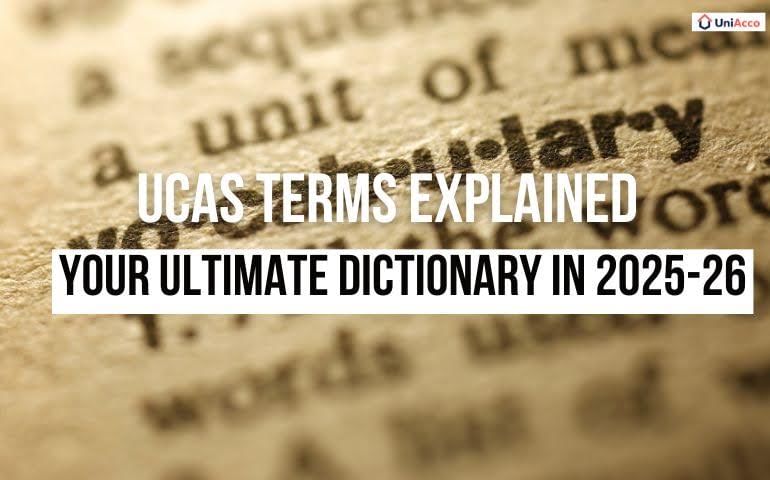The Scholastic Assessment Test, famously known as SAT, is a ball game of the mind and the vocabulary. Universities use high-grade language, and for students to fit in and understand specific jargon thrown at them, they need to take up the SAT.
The test is divided into several sections, including mathematics, critical reading, and writing skills, which will prepare them for their future. Grasping on the SAT vocabulary can be tricky. That’s why we have curated this essential guide on the most common SAT words – helping you master them with ease and boost your exam score effortlessly.
What Is SAT Vocabulary?
SAT vocabulary includes the words tested within the reading passages of the SAT exam, evaluating your ability to understand the meaning, tone, and usage in context.
SAT vocabulary includes words commonly used in academic and professional journals. A strong vocabulary is essential for success in both the reading and writing sections of the SAT. These words aren’t obscure or technical, but rather frequently used in academic and professional settings. Mastering the most common SAT words involves understanding how words function within complex texts and arguments.
But how do we understand and identify these SAT vocabulary words when they come in the form of questions? The paragraphs below will help you clear this confusion.
What Do SAT Vocabulary Questions Look Like?

Vocabulary-based questions constitute a significant portion of the SAT Reading and Writing section Around 28% of this section, or 13 to 15 questions, test your understanding of popular SAT words and the most used SAT words in context. These questions assess how well you can interpret and apply words effectively within passages.
The “Craft and Structure” domain of the SAT exam includes vocabulary-based questions in which you are given a paragraph describing a situation and asked multiple-choice questions about it. Often, these questions feature closely related options, making them tricky. A strong vocabulary, along with a clear understanding of the most common SAT words, is essential for answering accurately.
A strong SAT vocabulary can be your ticket to your dream university. Now that you know what to expect, let’s dive into why it’s essential for acing the exam.
Why is Vocabulary Important for the SAT?
A strong vocabulary is essential for success on the SAT, especially in the critical reading section. It helps you:
- Understand Reading Passages:
Recognizing a wide range of words allows you to grasp complex texts with ease.
- Answer Vocabulary-Based Questions:
Some questions directly test your understanding of word meanings, synonyms, and antonyms.
- Enhance Writing Skills:
A rich vocabulary helps you articulate ideas more clearly and effectively.
- Identify Passage Tones:
Familiarity with diverse words makes it easier to detect the tone of a passage and choose the right answers.
Having understood the importance of correct interpretation and usage of these words correctly to excel on the SAT, here’s a list of 100 must-know common SAT words:
100 Must-Know SAT Vocabulary Words
| Word | Part of Speech | Meaning |
| Abate | Verb | lessen |
| Abject | Adjective | completely without pride or dignity |
| Aberration | Noun | deviation from the norm |
| Abjure | Verb | renounce a belief, cause, or claim |
| Abnegation | Noun | renounce or reject something |
| Abrogate | Verb | do away with (a law, right, or responsibility) |
| Abscond | Verb | flee |
| Abstruse | Adjective | dense or obscure |
| Abysmal | Adjective | terrible |
| Accede | Verb | agree to a demand |
| Acumen | Noun | ability to make good judgments |
| Adamant | Adjective | stubborn |
| Adapt | Verb | modify |
| Admonish | Verb | reprimand someone |
| Advantageous | Adjective | beneficial circumstances |
| Affluent | Adjective | wealthy |
| Alacrity | Noun | brisk eagerness |
| Ambivalence | Noun | state of uncertainty |
| Anomaly | Noun | outside of what is normal or expected |
| Antipathy | Noun | strong dislike |
| Antiseptic | Adjective | clean or pure |
| Apt | Adjective | accurate or appropriate |
| Assertion | Noun | statement |
| Assiduous | Adjective | showing great care |
| Bane | Noun | source of distress or harm |
| Beguile | Verb | charm or enchant |
| Camaraderie | Noun | friendship |
| Candid | Adjective | truthful |
| Candor | Noun | quality of being honest |
| Carouse | Verb | drink and party in a lively way |
| Carp | Verb | complain about trivial matters |
| Catastrophic | Adjective | involving large-scale damage, usually sudden |
| Cavort | Verb | dance around excitedly |
| Censorious | Adjective | critical of others |
| Circumlocution | Noun | using many words, particularly in an evasive way |
| Circumscribe | Verb | restrict within limits |
| Clamor | Noun | a loud and confused noise |
| Clout | Noun | influence or power |
| Cognizant | Adjective | having knowledge of |
| Commensurate | Adjective | equal to |
| Comparable | Adjective | similar to another thing |
| Complement | Verb | add to or make complete |
| Compunction | Noun | a feeling of guilt |
| Concomitant | Adjective | naturally accompanying |
| Conducive | Adjective | helps produce positive or desired results |
| Conduit | Noun | a vessel or channel for transporting something |
| Conflagration | Noun | a large fire |
| Connive | Verb | trick; conspire |
| Consign | Verb | assign or deliver something into someone else’s custody |
| Constituent | Adjective | being part of a whole |
| Constructive | Adjective | helpful, useful |
| Construe | Verb | interpret |
| Contend | Verb | Reckon with, struggle against |
| Contusion | Noun | A bruise |
| Contrite | Adjective | Feeling of remorse or guilt |
| Contentious | Adjective | Likely to cause an argument |
| Contravene | Adjective | Violate the order of conflict |
| Convivial | Adjective | Friendly and cheerful environment |
| Corpulence | Noun | Obesity, fatness |
| Covet | Verb | Want greatly |
| Cupidity | Noun | Greed for money |
| Dearth | Noun | A lack of something |
| Debacle | Noun | A fiasco or failure |
| Debauch | Verb | Ruin or debase, particularly in a moral sense |
| Defunct | Adjective | No longer working |
| Demagogue | Noun | A political leader who appeals to the prejudices of the common people |
| Demur | Verb | Show reluctance, raise objections |
| Denigrate | Verb | disparage |
| Despot | Noun | tyrant |
| Diaphanous | Adjective | light and translucent |
| Dirge | Noun | song of lament for the dead |
| Discomfit | Verb | make someone uncomfortable |
| Disparate | Adjective | different from one another |
| Disrepute | Noun | state of disgrace |
| Duplicity | Noun | deceitfulness |
| Duress | Noun | intimidation or coercion to force someone to perform an act |
| Eclectic | Adjective | wide-ranging |
| Edict | Noun | an official order |
| Ebullient | Adjective | cheerful and lively |
| Efficacious | Adjective | has the power to achieve a particular result |
| Effluvia | Noun | unpleasant odor |
| Egregious | Adjective | outstandingly bad |
| Elegy | Noun | a poem of reflection, typically a lament for the dead |
| Elicit | Verb | evoke or draw out |
| Eloquent | Adjective | well-spoken |
| Elude | Verb | evade or escape from a danger, enemy, or pursuer, typically in a skillful way |
| Emaciated | Adjective | thin or weak |
| Embellish | Verb | add details to |
| Emulate | Verb | imitate |
| Enervate | Verb | weaken |
| Enmity | Noun | state of being opposed or hostile to someone |
| Ephemeral | Adjective | lasting a very short time |
| Equivocate | Verb | use ambiguous language so as to conceal the truth |
| Erroneous | Adjective | wrong or inaccurate |
| Erudite | Adjective | having great knowledge |
| Esoteric | Adjective | Understood by a small number of people with specialised knowledge |
| Eulogy | Noun | A speech or piece of writing that praises someone who has died |
| Evanescent | Adjective | Soon passing out of sight, memory or existence; quickly fading or disappearing |
| Exacerbate | Verb | Make a problem, bad situation, or negative feeling worse |
| Exculpate | Verb | Show or declare that someone is not guilty of wrongdoing |
English can be a funny language, for it has words that sound similar and yet hold completely different meanings. To make things easier for you, we’ve listed down commonly confused words that can come in handy when you’re preparing for your SAT exam.
Commonly Confused Words
| Word Pair | Meaning & Example |
| It’s vs. Its | It’s = It is/It has (It’s raining). Its = Possession (The dog wagged its tail). |
| They’re vs. Their vs. There | They’re = They are (They’re going to the party). Their = Possession (Their house is big). There = Refers to a place (The book is over there). |
| You’re vs. Your | You’re = You are (You’re going to love this). Your = Possession (Is this your book?). |
| Accept vs. Except | Accept = To receive (I accept your apology). Except = Exclude (Everyone was invited except John). |
| Access vs. Excess | Access = The ability to enter (He has access to the building). Excess = More than necessary (There was an excess of food at the party). |
| Affect vs. Effect | Affect = To influence (The weather can affect your mood). Effect = A result (The effect of the medication was immediate). |
| Alludes vs. Eludes | Alludes = Refers indirectly (He alludes to his past in his speech). Eludes = Escapes or avoids (The answer eludes me). |
| Allusion vs. Illusion | Allusion = An indirect reference (The poem contains an allusion to Shakespeare). Illusion = A false perception (The magician created an illusion of disappearing). |
| Cite vs. Site vs. Sight | Cite = To quote or reference (Please cite your sources). Site = A location (The construction site is busy). Sight = The ability to see or a view (The sight of the mountains was breathtaking). |
| Conscious vs. Conscience | Conscious = Aware or awake (She was conscious during the procedure). Conscience = Inner sense of right and wrong (His conscience wouldn’t let him lie). |
| Could of vs. Could have vs. Could’ve | Could have/Could’ve = Indicates a possibility in the past (I could have gone to the concert). Could of is incorrect usage and should be avoided. |
| Illicit vs. Elicit | Illicit = Illegal or forbidden (He was involved in illicit activities). Elicit = To draw out a response (The teacher tried to elicit answers from the students). |
| Eminent vs. Imminent | Eminent = Famous or respected (She is an eminent scientist). Imminent = About to happen (A storm is imminent). |
| Empathetic vs. Emphatic | Empathetic = Showing understanding and compassion (She is very empathetic towards others’ feelings). Emphatic = Expressing something forcibly and clearly (He was emphatic about his decision). |
| Fewer vs. Less | Fewer = Used with countable nouns (There are fewer apples than oranges). Less = Used with uncountable nouns (I need less sugar in my coffee). |
| Many vs. Much | Many = Used with countable nouns (There are many books on the shelf). Much = Used with uncountable nouns (I don’t have much time left). |
| Imitated vs. Intimated | Imitated = Copied someone’s actions or behavior (She imitated her favorite singer perfectly). Intimated = Suggested or hinted at something indirectly (He intimated that he might leave early). |
| Ingenuous vs. Ingenious | Ingenuous = Innocent and unsuspecting (Her ingenuous nature made her trusting of everyone). Ingenious = Clever and inventive (He came up with an ingenious solution to the problem). |
| Patience vs. Patients | Patience = The ability to wait without frustration (She showed great patience while waiting in line). Patients = People receiving medical treatment (The doctor checked on her patients regularly). |
| Perspective vs. Prospective | Perspective = A point of view or outlook (From my perspective, it seems unfair). Prospective = Likely to happen or expected in the future (They are interviewing prospective candidates for the job). |
| Respectfully vs. Respectively | Respectfully = In a way that shows respect (I respectfully disagree with your opinion). Respectively = In the order given (John and Jane, aged 25 and 30, respectively, attended the event together). |
| Than vs. Then | Than = Used for comparisons (She is taller than her brother). Then = Refers to a time or sequence of events (We went to dinner, and then we watched a movie). |
| Wander vs. Wonder | Wander = To move around without a fixed course or destination (They love to wander through the city streets) . Wonder = To feel curiosity or amazement about something (I wonder what lies beyond that mountain). |
But, we aren’t the ones that will give you the list of words, and leave you to it. To memorise and interpret these words successfully, we’ve curated a few tips that can help you learn better:
How to Study SAT Words Effectively: 4 Essential Tips
- Consistent Practice and Active Engagement:
Regularly examine what you have learned and expand your vocabulary by incorporating new word definitions into context. This will help you use the terminology more effectively and improve your performance on assessments
- Focus On Words You Don’t Know:
Use methods like the Waterfall Method to concentrate on words that are most difficult for you, reviewing them more often than words you already know. Pay attention to how SAT words are used in context, particularly in reading passages, and break down unfamiliar words by learning common roots, prefixes, and suffixes.
- Take Official SAT Practice Tests:
Familiarize yourself with the format of the SAT and learn unfamiliar vocabulary by practicing with official SAT tests. Directly place the words you do not know into your study stack for a concentrated review
- Utilize Flashcards:
Flashcards are a great way to memorize new words, and there’s a simple trick to make them even more effective. Use two to three different colored flashcards and write SAT words on them. As you go through them, create two piles—one for words you know (“I Know” pile) and another for words you struggle with (“Struggled” pile). On the next round, go through the “Struggled” pile again, moving any words you’ve learned into the “I Know” pile. Repeat this process until every word makes it to the “I Know” pile.
Knowing the most common SAT words can be a game-changer for your score. These words pop up everywhere—in reading passages, tricky sentence completions, and even those sneaky grammar questions. The more you practice, the more naturally they’ll come to you on test day. Try using them in daily conversations or writing exercises—it’ll make a bigger difference than you think.
Your SAT score can open doors to top universities abroad, and when it does, UniAcco ensures you find a comfortable, well-located student accommodation effortlessly. Focus on your future—we’ve got your stay covered!
- ACT Vs SAT: What Are The Key Differences?
- GRE Vs SAT: What Is The Difference
- Top 10 Highest-Paying MBA Specialisations To Opt For In 2025
FAQs
1. What are the most common words on the SAT?
Common SAT vocabulary includes words like abate, abject, aberration, advantageous, affluent, alacrity, anomaly, antipathy, and antiseptic. These words frequently appear in the reading passages and are essential for understanding complex texts on the SAT.
2. How can I improve my SAT vocabulary?
To improve your SAT vocabulary, read extensively and actively look up unfamiliar words in context. Utilize effective memorization techniques like spaced repetition and flashcards. Focus on learning roots, prefixes, and suffixes to decipher unfamiliar words.
3. Is the SAT practice test easy?
The difficulty of SAT practice tests can vary. Some students find the Bluebook practice tests easier than the actual digital SAT. However, the College Board aims for consistent difficulty across practice tests. Some suggest that practice tests 5 and 6 are the most accurate.
4. Is SAT hard for Indians?
Whether the SAT is hard for Indian students depends on the individual’s preparation and skills. Many Indian students find the math section manageable due to a strong foundation in math. However, the reading and writing sections can be more challenging due to complex passages and unfamiliar question styles.
5. Should I memorise words for the SAT?
While the SAT doesn’t directly test memorized vocabulary, a strong vocabulary can improve reading comprehension and overall scores. Focus on learning words in context through reading and using effective memorization techniques. The “Waterfall Method” can help you concentrate on the most difficult words















0 Comments